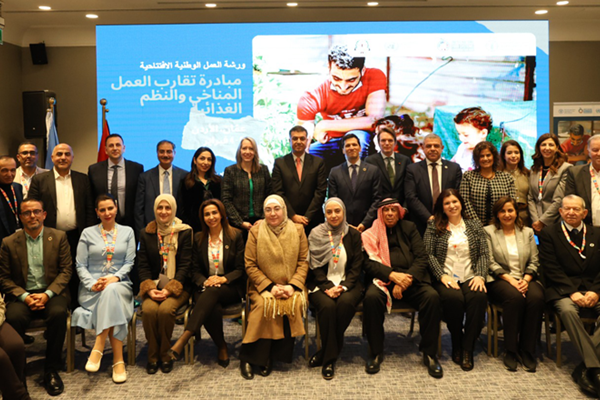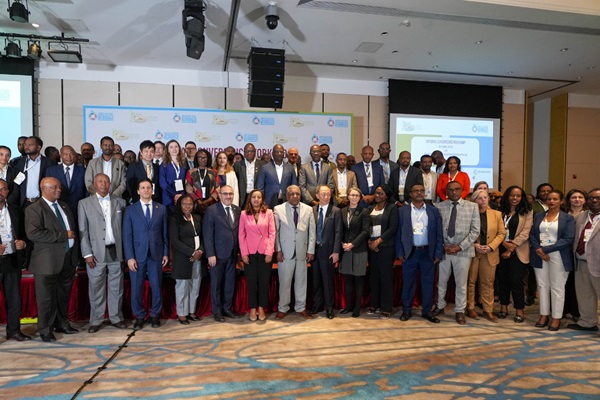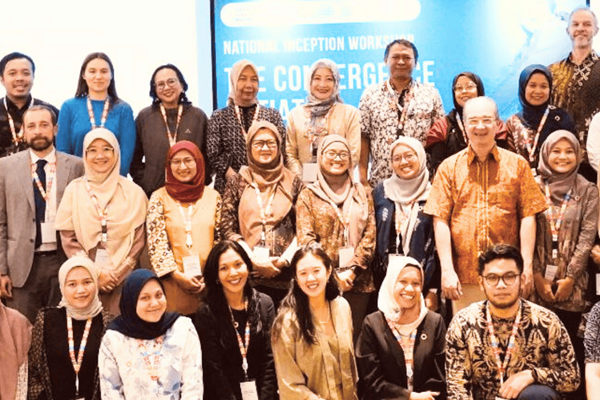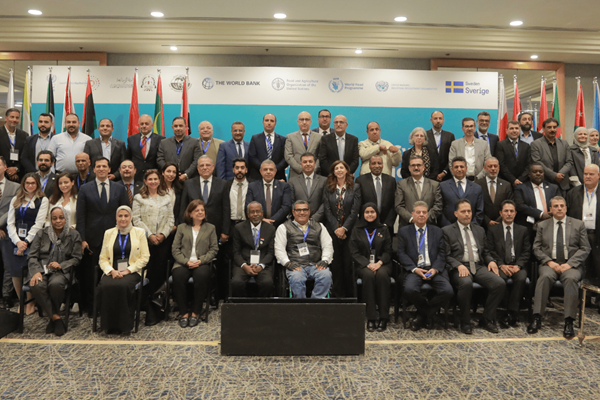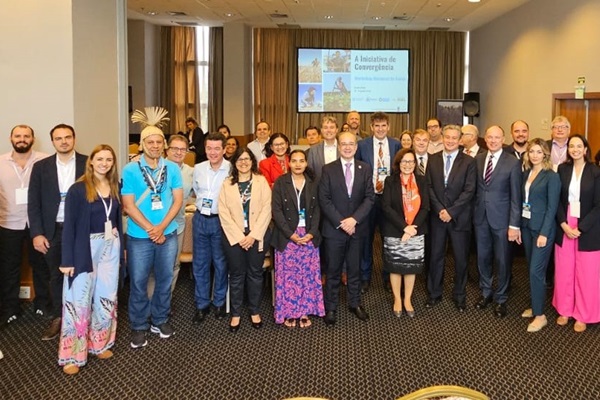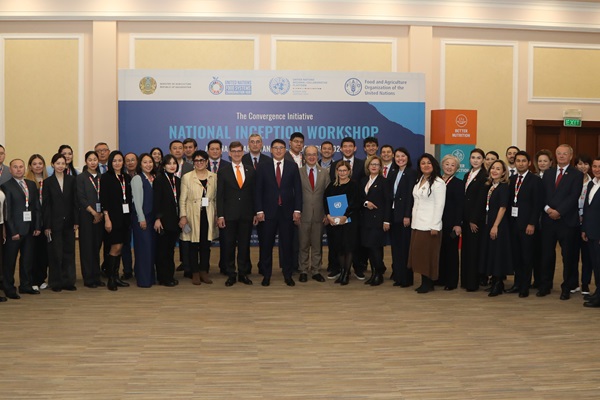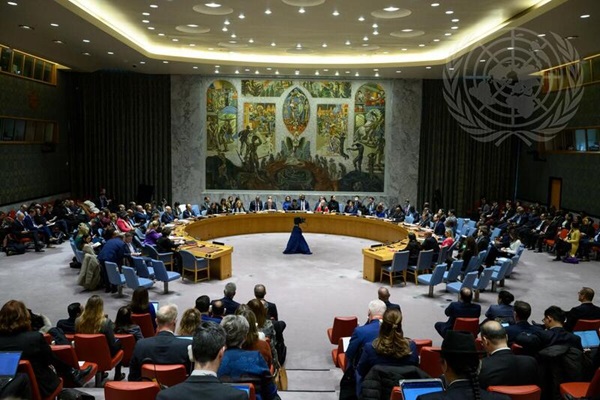ALIGNING FOOD SYSTEMS AND CLIMATE ACTION
The Convergence Initiative
The UN Food Systems Coordination Hub’s Convergence Initiative, launched by the UN Deputy Secretary-General at COP28, drives the integration of food systems transformation and climate action for accelerated sustainable development.
.png?sfvrsn=6f0e390b_1)

BACKGROUND
The Convergence Initiative bridges two global milestones: the UN Secretary-General’s Call to Action for Accelerated Food Systems Transformation (UNFSS+2) and the COP28 UAE Declaration on Sustainable Agriculture, Resilient Food Systems, and Climate Action. Together, these highlight the urgency of aligning food systems transformation with climate action to achieve the 2030 Agenda and the Paris Agreement goals.
By linking food systems transformation pathways with Nationally Determined Contributions (NDCs) and National Adaptation Plans (NAPs), the Convergence Initiative aims to drive synergetic action at national levels, ensuring countries can pursue both sustainable development and climate resilience. This alignment strengthens governance, policy frameworks, and multi-stakeholder collaboration, promoting cohesive actions that contribute to both the Sustainable Development Goals (SDGs) and the Paris Agreement.
The Convergence Process
Our approach is built on four key steps to ensure effective alignment and synergies between food systems and climate actions.
Facilitate
Support national efforts to align priorities between food systems transformation and climate action teams.
Empower
Equip National Convenors to lead alignment through multi-sector co-design and peer-learning initiatives.
Nurture
Connect national efforts with global and regional actions to maximize impact and optimize resources.
Safeguard
Ensure an inclusive approach by engaging diverse stakeholders in a collaborative, whole-society co-design process.
THE ROADMAP
Strategic Framework
The Convergence Initiative's Strategic Framework presents a clear approach to aligning food systems transformation with climate action, fostering cross-sector collaboration to drive sustainable development.
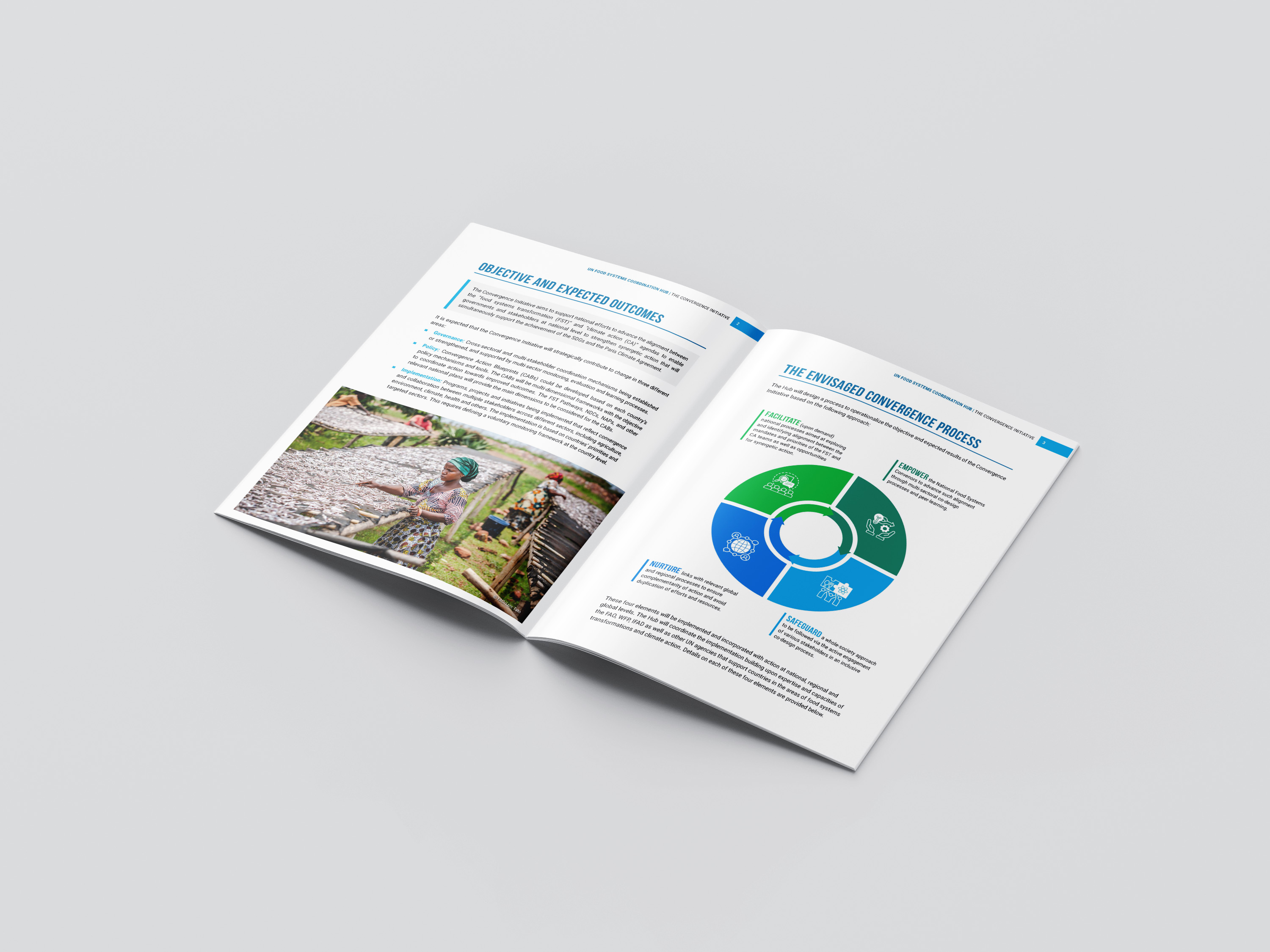

RESULTS
Outcomes
The Convergence Initiative aims to deliver impact in three key areas:
- Governance: Establishes cross-sector coordination mechanisms, reinforced by strong monitoring and evaluation systems.
- Policy: Develops Convergence Action Blueprints (CABs) to align national food systems and climate plans into cohesive, multi-dimensional frameworks.
- Implementation: Collaborative programs and projects across sectors like agriculture, environment, climate, and health, aligning with countries’ priorities and targeted needs.
PILOT COUNTRIES
National Inception Workshops
In selected pilot countries, National Inception Workshops are fostering synergies between food systems and climate agendas. These workshops bring together a diverse group of actors – including National Convenors, UNFCCC climate focal points, representatives from key government ministries, scientific experts, local community leaders, academia, private sector representatives, UN Country Teams, and regional UN agencies – to build skills, share knowledge, and draft actionable blueprints for achieving convergence.
Expected Outputs:
- Convergence Action Blueprint (CAB): A strategic guide for aligning food systems and climate efforts.
- Convergence Group: A collaborative platform to oversee and drive this alignment.
| Location | Date | Convergence Action Blueprint |
|---|---|---|
| Astana, Kazakhstan | 23 - 24 October 2024 | |
| Brasilia, Brazil | 29 - 31 October 2024 | Workshop Summary Report |
| Jakarta, Indonesia | 6 - 8 November 2024 | Convergence Action Blueprint |
| Istanbul, Türkiye | 10 - 12 December 2024 | Convergence Action Blueprint |
| Addis Ababa, Ethiopia | 15 - 17 January 2025 | Convergence Action Blueprint |
| Amman, Jordan | 4 - 6 February 2025 | |
| Yaoundé, Cameroon | 25 - 26 February 2025 | Convergence Action Blueprint |

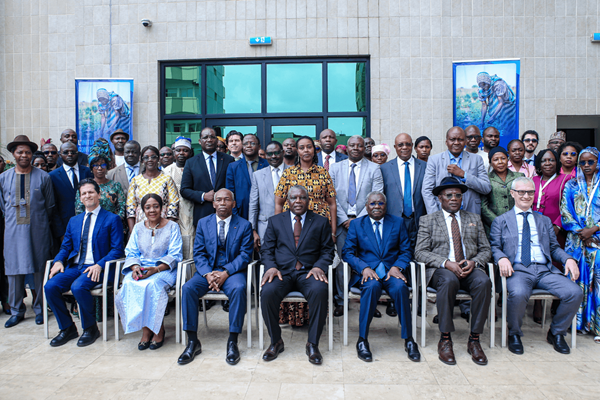
.tmb-th600x400.jpg?Culture=en&sfvrsn=5dc2d86b_3)
